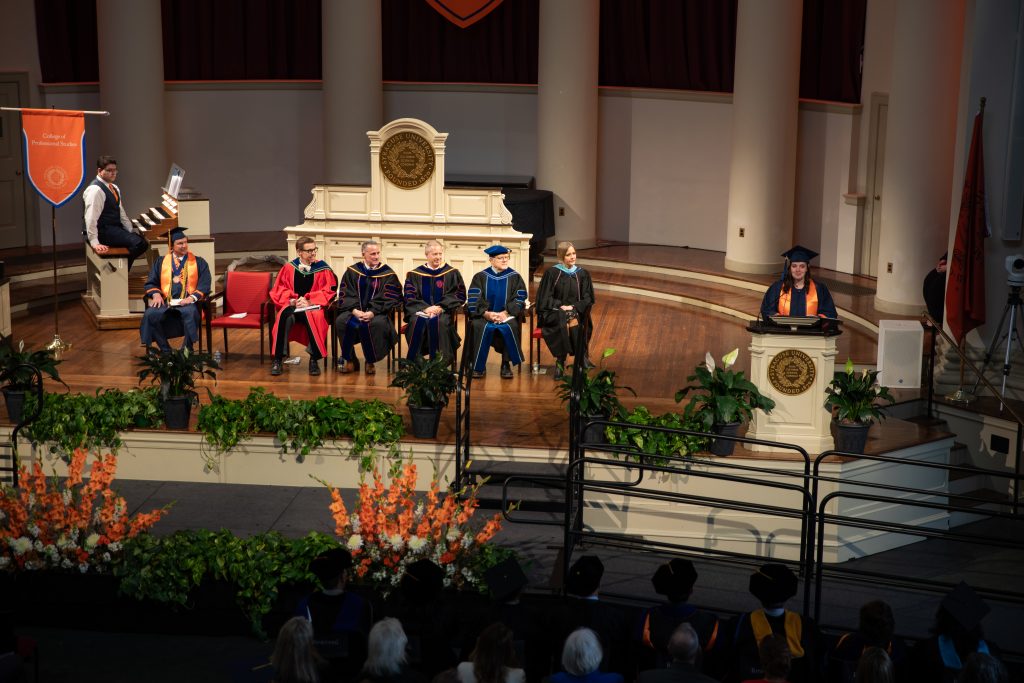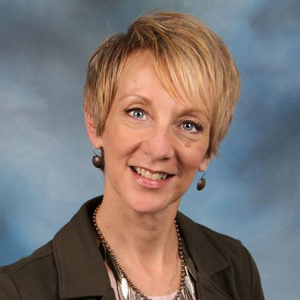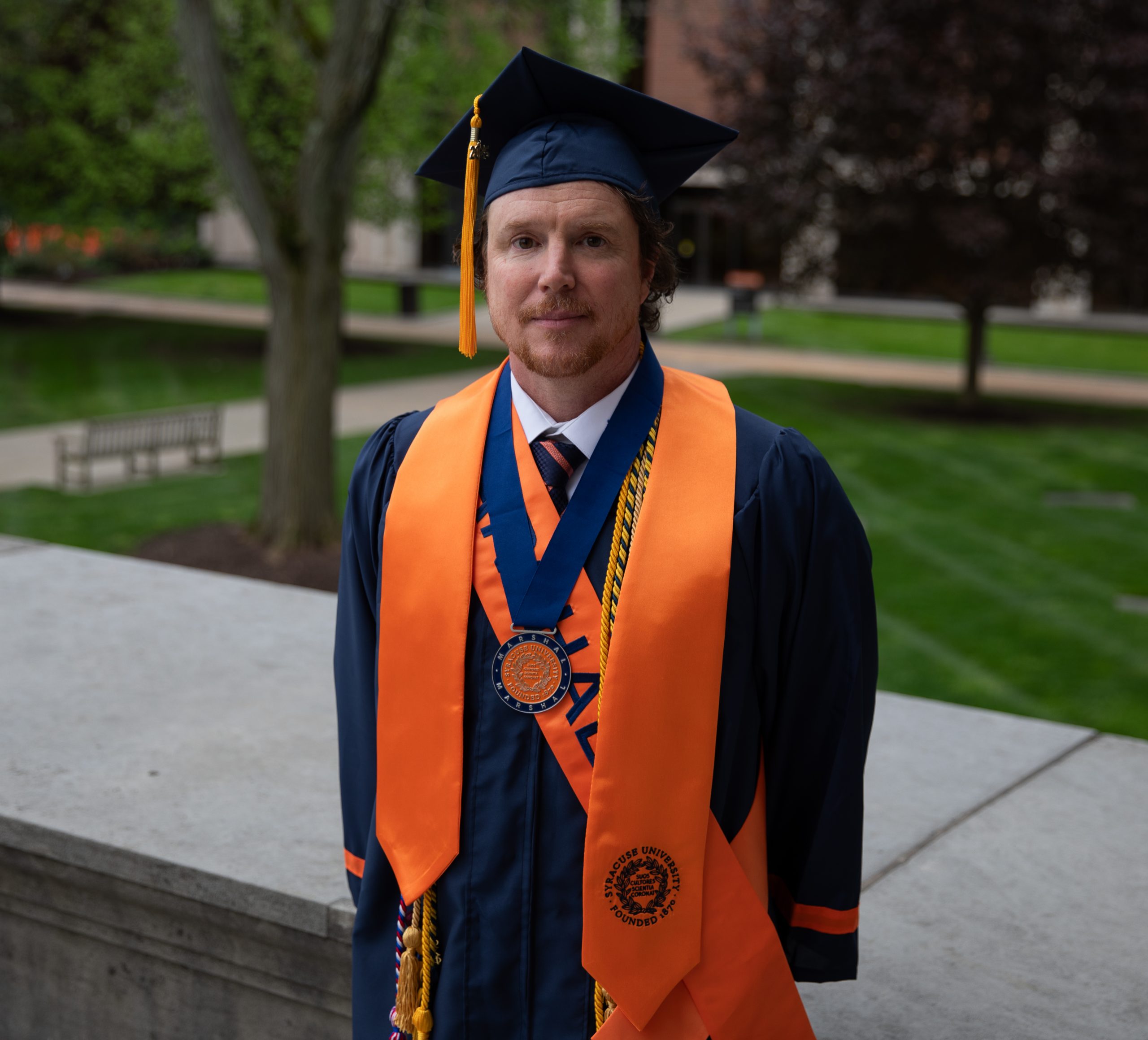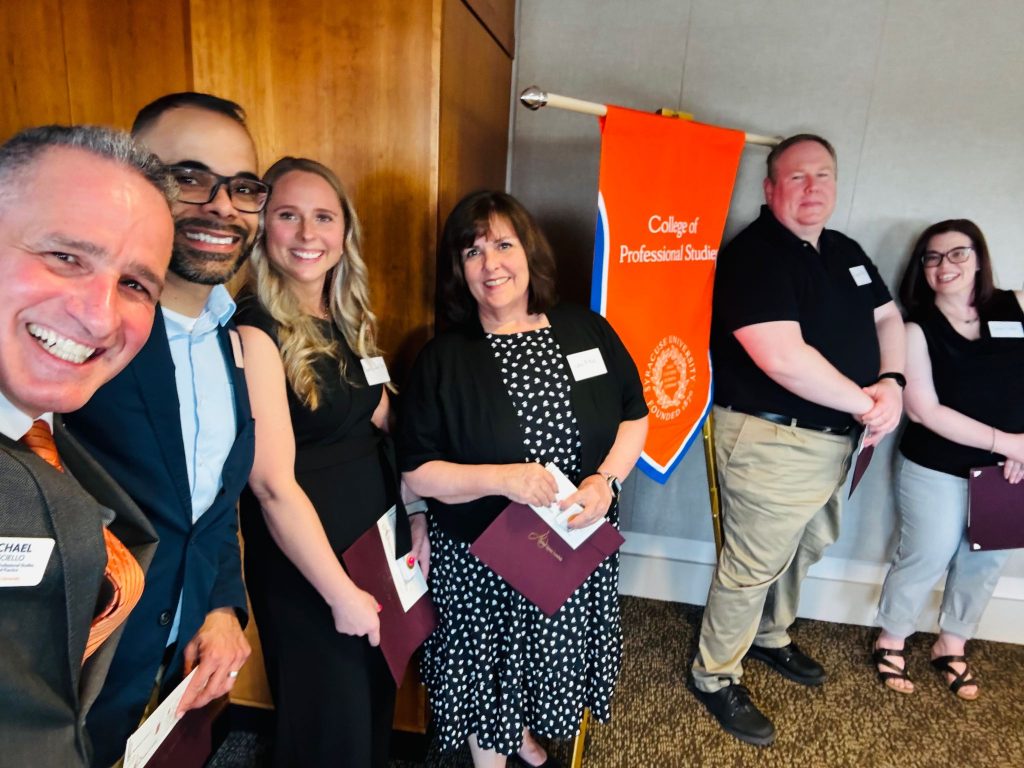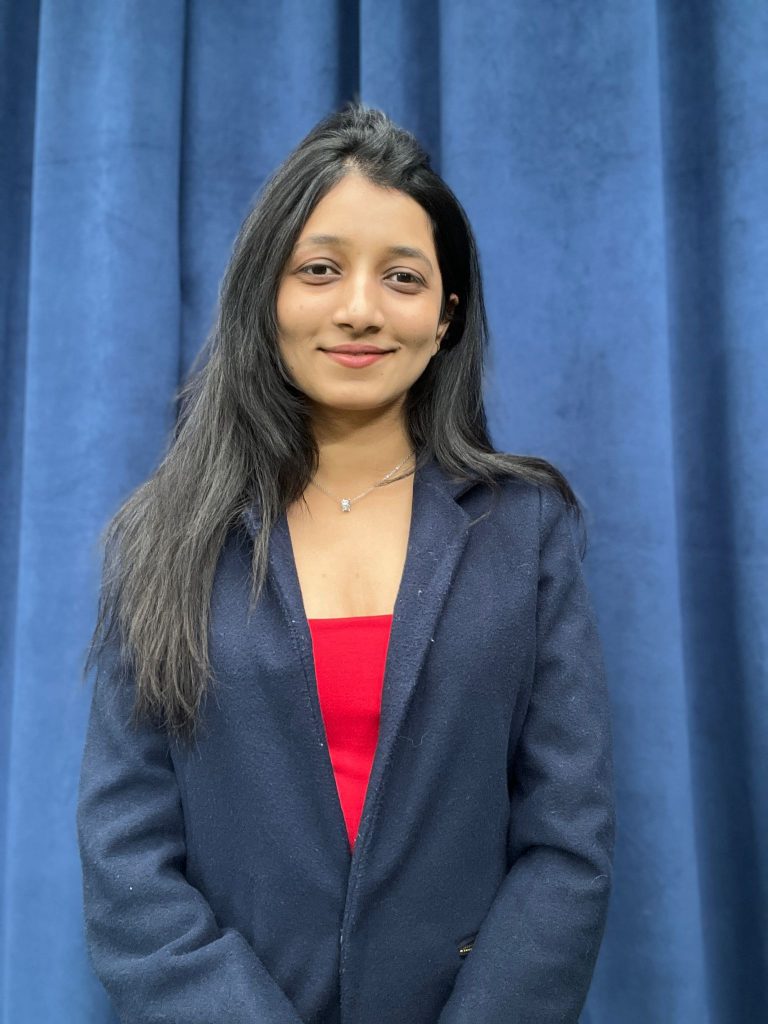When Rutika Gangurde G’24 joined Syracuse University’s iConsult Collaborative, she had no idea the experience would be a turning point in her academic and professional life. Now a program manager at Micron Technology, the engineering management graduate credits the hands-on, community-driven projects at iConsult for sharpening her skills and helping her stand out. The program, which was recently recognized by UNESCO as a global model for “community-based learning in higher education,” gave Gangurde more than just experience; it gave her direction.
What types of experiential learning opportunities have you participated in?
I’ve been fortunate to participate in a variety of hands-on experiences, from coursework company experiences to data analytics projects. My time with iConsult, however, has been especially meaningful, as it allowed me to apply what I’ve learned in the classroom to real-world challenges and work alongside some incredible people.
How did your hands-on experiences with iConsult enhance your academic learning and help you apply theoretical knowledge in real-world settings?
Working with iConsult helped me connect the dots between theory and practice. While my coursework provided a strong foundation, the opportunity to implement project management techniques and process improvement strategies in real client projects was invaluable. It helped me truly understand the importance of applying theoretical knowledge in a real-world setting.
What skills did you develop or improve through your time at iConsult that made you more marketable to employers?
Working at iConsult helped me refine several skills, particularly in project management, leadership, and technical areas. I strengthened my communication skills through regular client interactions, learning to present ideas clearly and manage client expectations.
How did you network or build relationships with professionals during experiential learning, and how did that contribute to your job search after graduation?
I’ve had the chance to meet and learn from so many great professionals, especially Dr. Arthur Thomas at iConsult. By collaborating on projects and attending meetings, I was able to connect with people who really opened my eyes to different career paths and industry insights. These relationships have been helpful, not just in gaining new perspectives, but also in my job search in career fairs and online after graduation.
In what ways did experiential learning help you build your resume or portfolio?
The hands-on experiences I gained through projects with iConsult at Albany Health Management, Phairify, Nine Ai, Diabetech and ICM Controls significantly enhanced my resume. I was able to showcase a diverse range of technical and leadership skills, including project management, process optimization, and semiconductor knowledge. My previous experience at Accenture Solutions Pvt. Ltd. further strengthened my portfolio, giving me a well-rounded set of experiences that highlight my ability to handle complex projects and deliver results. These relationships have been helpful, not just in gaining new perspectives, but also in my job search in career fairs and online after graduation.
How did experiential learning help you identify the types of roles or industries that were the best fit for your skills and career aspirations?
Project management is such a diverse field that allows you to apply your knowledge across various industries like healthcare, semiconductor, finance, and more. Through my experiences, I saw firsthand how adaptable project management skills are. Whether optimizing processes in healthcare or managing technical projects in the semiconductor industry, the right skill set allows you to bring value to any sector. This diversity has helped me identify my career aspirations and reinforced the importance of combining work experience and academic learning to be successful across multiple industries.
How have your experiences in internships, volunteer work, or other hands-on opportunities helped you build the confidence and mindset needed for transitioning into post-graduate life?
Throughout my career journey, I often struggled with the idea that having a diverse skill set and range of experiences might prevent me from applying for a specific field or industry when looking for a job. I thought that being spread across various areas would make it harder to focus on one path. However, after a meeting with Dr. Thomas, he helped me realize that the diversity in my experiences is what makes me unique. His words, “The diversity in your resume is what makes you you,” were a turning point. hat insight boosted my confidence and shifted my mindset. I now see that my varied experiences are strengths that make me adaptable and well-equipped to thrive in different roles and industries.
How are you planning to apply the skills and experiences you’ve gained during your studies to your next steps, whether in further education, your career, or personal growth?
My time at iConsult played a crucial role in shaping my management skills and bridging the gap between my technical experience and management responsibilities. It helped me transition from being hands-on with technology to taking on a more strategic, leadership-focused role. The experiences and skills I gained at iConsult not only boosted my confidence but also helped me secure interviews with top companies. One of those interviews led to an opportunity at Micron Technology, where I am now working as a program manager. I’m incredibly grateful for the opportunities iConsult provided, as it laid the foundation for my growth and helped me take the next step in my career.
Is there anything else you would like to add?
It’s been quite a journey! From Accenture and iConsult to learning how to balance technical and management tasks, I’ve realized that success doesn’t require perfection. Sometimes, it’s about having the right mindset and the guidance of a good mentor. I’m grateful for the people who’ve supported me, and I’m excited to keep growing by taking chances and learning from missteps.
To learn more about iConsult and experiential learning, visit iConsult’s webpage.

